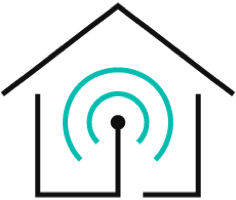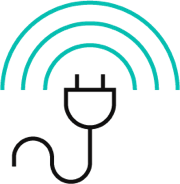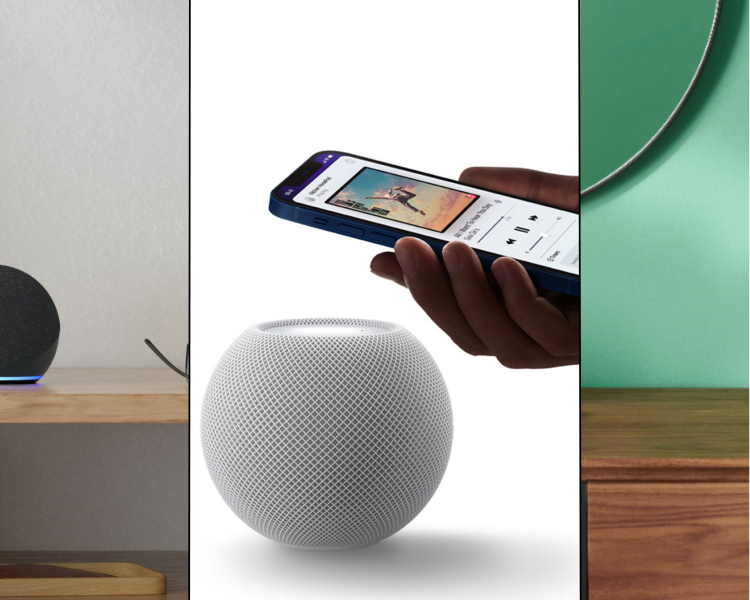Voice automated assistants are all the rage, and we are now more reliant than ever on innovative home technology. Most homes are rapidly adopting smart speakers, which frequently act as the central hub for their smart devices.
Many people are skilled at shopping for a wide range of intelligent devices. But the possibility may seem overwhelming if you've never bought a smart speaker before or are returning to the market after a break. Technology advances quickly, so things that were cutting-edge a few years ago may now be mediocre or even outdated.
That's where Evvr smart solutions come to the fore. From smart energy monitors that can be controlled through Siri to Google Assistant and Alexa-enabled In-Wall Relay Switches, you can get everything under one roof that can make your home a smart home!
- What Is A Smart Home Audio System?
- Functions of Smart Home Speakers
- Top Smart Home Audio Systems In 2023
- Evvr Smart Home - Smart Living Redefined
- Choosing The Right Smart Home Audio System
- FAQs of Smart Home Audio System
What Is A Smart Home Audio System?
Using a "virtual assistant," a smart speaker is a speaker that you can operate with your voice. It will respond to your questions, carry out a variety of automatic operations, and manage other compatible smart devices. This can entail giving you the weather information, turning on the lights, playing music, and many other duties. These skills are constantly growing.
Our go-to digital assistants are now Alexa, Google Assistant, and Siri. They reside inside our gadgets and respond to our verbal orders to play music, set timers, and instruct children on how to spell challenging phrases in their schoolwork. One of the simplest ways to use these voice assistants around your house is via smart speakers.
However, you must select a camp before choosing a smart speaker. The best voice assistants play poorly with others, so if you want to outfit several rooms, stick with just one. This guide outlines all of your options and assists you in selecting the platform that best suits your requirements and the best smart speaker (or speakers) for your home.
Functions of Smart Home Speakers
We already know that smart speakers are voice-activated virtual assistants that free you up from mundane activities. The virtues mentioned above, however, only represent the very beginning.
A few years ago, smart speakers did not have the functionality they do now. They can serve as a complete smart home hub. They can be integrated with devices like coffee machines, TVs, smart locks, thermostats, security systems, and color-changing lights.
There are numerous brands, sizes, and color options for smart speakers. Some have incredible sound quality and are more prominent. Others are smaller and, at best, helpful average (but may be able to plug into a more prominent external speaker). Even some will have a color display.
When you had to cross the room to turn off the lights or adjust, the temperature was long gone. Use a smart speaker to make your order to your virtual assistant, and they will obey.
Your virtual assistant will send your request through the Internet of Things (IoT) and answer as soon as it recognizes your voice. Naturally, each of these procedures is completed in a split second. The more you communicate with a virtual assistant, the better they get at understanding your accent and giving you accurate information.
Top Smart Home Audio Systems In 2023
Amazon Echo
The first Amazon Echo launched the craze for smart speakers, and it has only gotten better over time. The Echo's current design is a sphere rather than a cylindrical one. It gets surprisingly loud for its size and includes an integrated temperature sensor and Zigbee smart home hub for compatible devices. It is practically as potent as the Amazon Echo Plus, the upgraded Echo speaker before the Echo Studio firmly took over that position and is now discontinued. That translates to powerful bass in a reasonably small size.

Google Nest Audio
In all actuality, this is Google's answer to the Amazon Echo. It costs $100, is sizable but not excessively, and enables hands-free Google Assistant use without a phone. It outperforms the Echo in higher-frequency response, but because it produces less bass, it won't sound as well at volume levels that fill the room. In addition, its chiclet shape is plainer and ungainly than the welcoming Echo sphere. But the sound is more important than the shape.

Apple HomePod Mini
The first Siri smart speaker was the Apple HomePod, but it needed to be more pricey and had more features to be helpful. The HomePod small is a big improvement over the HomePod and is only one-third the price. It even has good, if not quite as loud, sound and hands-free Siri voice control. Although its sound quality is inferior to that of the Amazon Echo, it is smaller and supports Apple AirPlay 2.

Sonos Move
Because voice assistants require an internet connection, only some smart speakers are portable. One exception is the Sonos Move. It is big and robust and has an inbuilt battery to carry it. Even that flexibility is more than most smart speakers provide, making it more appropriate for moving between rooms (or from inside to your backyard or deck) than going on long journeys. Additionally, it has an IP56 rating, so you can take it to the beach without worrying about it becoming wet.

Google Nest Mini
The cheapest intelligent Assistant Google speaker available is the small puck. It fills the same void for Google Assistant as the Amazon Echo Dot does for Alexa in that you can effortlessly use it anywhere—even on the wall! Although the treble is clear, the audio quality is generally relatively poor. Therefore, it is appropriate if you want to play podcasts to passively occupy you during the day or listen to music before you go to sleep.

Evvr Smart Home - Smart Living Redefined
Evvr may be the newest on the block compared to other older brands, but we have covered a lot of ground in record time. Whether you are willing to go all in on transforming your home into a smart home, or just the baby steps, Evvr is your trusted partner!
Choosing The Right Smart Home Audio System
We outline what to look for because we are directly involved in the innovative home sector. Some considerations are relevant while looking for and selecting any contemporary smart speaker, while others might have yet to cross your mind.
Specifications
Naturally, the strength and quality of a speaker should be your primary priorities.
Adapt the audio specifications to your desired use. Even though products like the Echo Dot and Nest Mini are inexpensive, they lack the bass and clarity of instruments and vocals, and even in a calm environment, they won't be able to drown out party noise. They don't sound bad, but their main uses are controlling smart homes, listening to podcasts and news, and occasionally playing quiet music.
Voice Assistants
To be considered "smart," a speaker doesn't need a voice assistant; all it needs to do is support automation-related protocols like AirPlay and Google Cast. Asking your speaker to play a song, turn on the lights, or provide you with the weather forecast is unquestionably more convenient.
Amazon Alexa, Google Assistant, and Apple's Siri are the three most popular voice assistants, and each is connected to an innovative home platform (linked to HomeKit). The most widely used and well-supported term for speakers and smart home devices that work with it is Alexa.
Wired Or Wireless
The HomePod mini and 4th generation Echo are examples of items that can serve as hubs for their respective innovative home platforms. Seats enable supplementary automation to function without an internet connection and may even be necessary for the initial remote control of a smart home.
A suitable Home Hub (like the HomePod) is required for both purposes when creating a HomeKit setup. Speaker-based hubs are uncommon and are mostly merely a luxury on other platforms.
Smart Home Hubs
The majority of smart speakers only support wired power. A battery is an extra expense, and smart features can consume much power. Even without additional capabilities like automated room adjusting or a smart home gateway, Wi-Fi is notoriously power-hungry.
There are still several battery-powered devices available, such as the Sonos Roam and the Bose Portable Smart Speaker, if you want the freedom to move around or listen outside. They switch to Bluetooth pairing with a phone, tablet, or laptop when out of Wi-Fi range.
FAQs of Smart Home Audio System
What is a smart home audio system?
A networked device like a smartphone, tablet, or other connected devices can be used to remotely operate a smart home audio system from anywhere in the world over the internet. The user can control a button's single touch thanks to the internet-based interconnection of numerous audio devices.
How can I play my favorite songs throughout the house?
Smart speakers are the best option for a multi-room audio setup. An app is used to set up these speakers and connect them to your Wi-Fi network. Then, they have built-in microphones that scan the environment for wake words and voice commands. You may tell a smart speaker to play a song or podcast with your voice.
Which is a better audio system, wired or wireless?
Since wireless signals are less likely to experience interference or dropouts, wired speakers are often more reliable and of higher quality than their wireless counterparts. Since the audio is not compressed during data transfer, they have a deeper, richer sound.















